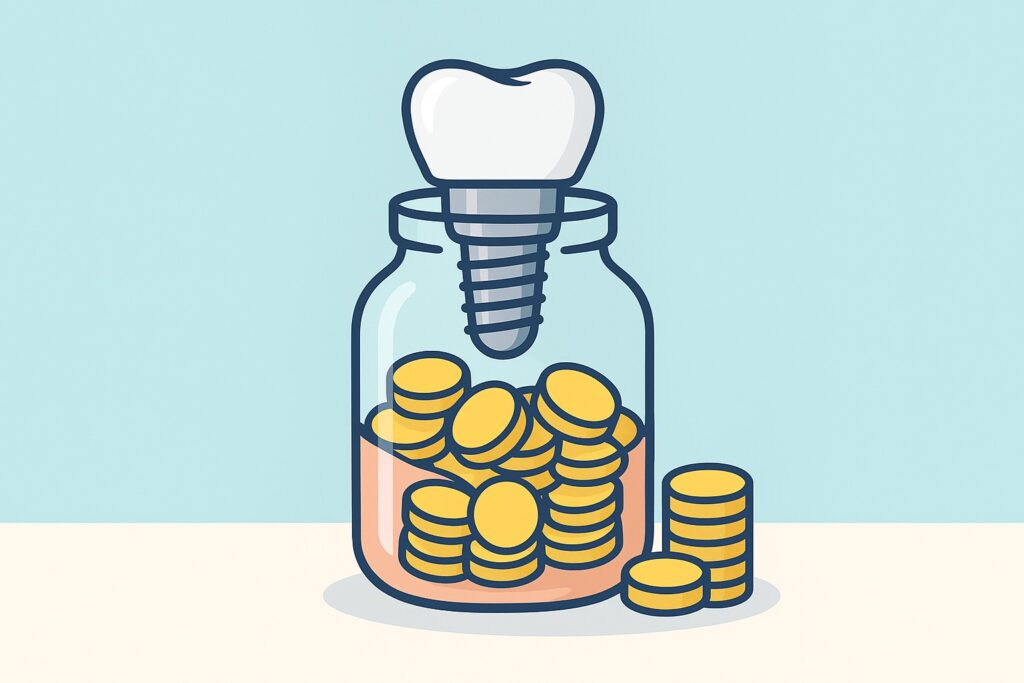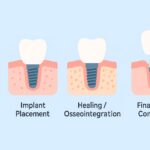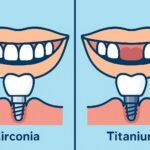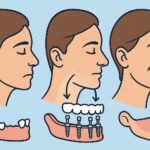Dental implants are one of the most effective long-term solutions for missing teeth, but the high cost often puts them out of reach for many people. A single implant can cost thousands of dollars, and most insurance plans either provide limited coverage or none at all. For those without substantial savings or dental benefits, the price can feel impossible.
However, there are several practical ways to make dental implants more affordable. From insurance options and discount programs to financing plans and low-cost clinics, it’s possible to reduce costs or break them into manageable payments. This article covers seven proven ways to afford dental implants without compromising your oral health.
Understanding the True Cost of Dental Implants
The cost of dental implants can vary widely, but on average, a single tooth implant in the U.S. ranges from $3,000 to $5,000. This includes the implant post, abutment, and crown. If bone grafting or other procedures are needed, costs can rise even higher. Full-mouth implants can cost $20,000 to $50,000 or more depending on the method and materials used.
Several factors influence the total cost:
- Location: Urban areas and regions with higher living costs tend to have higher dental fees.
- Type of Implant: Traditional implants, mini implants, and All-on-4 systems vary in price and complexity.
- Materials Used: Titanium is common, but zirconia or custom-made components may raise the cost.
- Dentist’s Expertise: Experienced specialists or oral surgeons may charge more but often deliver better outcomes.
- Preliminary Procedures: Tooth extractions, bone grafts, or sinus lifts will add to the final bill.
Understanding the breakdown of these costs helps patients evaluate their options and prepare financially — especially when comparing providers or financing plans.
1. Dental Insurance Plans That Cover Implants
Traditional dental insurance hasn’t always covered implants, but more plans are beginning to include partial coverage. While it’s rare for insurance to pay 100% of the cost, having a policy that covers even part of the procedure can significantly reduce expenses.
Here’s how insurance may help:
- Partial Coverage: Many plans cover related services like extractions, crowns, or bone grafts, even if they don’t pay for the implant itself.
- Waiting Periods: Some plans require a 6–12 month waiting period before implant coverage begins.
- Annual Maximums: Most dental policies cap benefits at $1,000–$2,000 per year, so patients may need to spread treatment across multiple years to maximize coverage.
- Employer-Based Plans: Some employers offer higher-tier dental insurance with implant benefits.
Patients considering insurance should carefully review the fine print, especially exclusions. If implants aren’t covered, looking into supplemental or premium dental insurance plans may still make financial sense in the long term.
2. Dental Discount Plans
Dental discount plans, also called savings plans, are membership-based programs that provide reduced rates on dental procedures, including implants, through participating providers. Unlike insurance, there are no claims or annual maximums — instead, you pay an annual membership fee and receive instant discounts.
How they work:
- You sign up for a plan and pay a yearly fee (typically $100–$200).
- You choose a dentist in the network who honors reduced pricing.
- Discounts usually range from 10% to 60% off standard dental fees.
Why they help with implants:
- While implants aren’t always fully covered by insurance, discount plans often apply directly to the procedure itself.
- Patients can combine discounts with payment plans to spread out the remaining costs.
- There’s no waiting period, so savings begin immediately.
For someone paying several thousand dollars per implant, even a 20–30% discount can make a meaningful difference.
3. Dental Schools and Training Clinics
Dental schools and teaching hospitals often provide implants and other advanced treatments at significantly reduced costs. Procedures are performed by dental students or residents under the close supervision of licensed professionals, ensuring safety and quality while lowering the price.
Why this option is more affordable:
- Schools charge only for materials and lab work, not for a dentist’s full professional fee.
- Patients can save 30%–60% compared to private practice prices.
- Some universities also offer sliding-scale fees based on income.
What to expect:
- Appointments may take longer since students work carefully and require instructor approval at each step.
- Availability can be limited, and waiting lists are common.
- Only certain schools offer implants, so patients may need to travel to a nearby university program.
For patients willing to invest extra time, dental schools provide one of the most reliable ways to access affordable, supervised implant care.
4. Payment Plans Through Dentists
Many dental practices understand that implants are a major investment and offer in-house payment plans to make them more manageable. Instead of paying the entire cost upfront, patients can spread payments out over several months or years.
Common payment options include:
- Installment Plans: Breaks the total bill into smaller monthly payments with little or no interest.
- Third-Party Financing: Dentists often partner with financing companies that handle billing while offering extended payment terms.
- Zero-Interest Promotions: Some clinics provide short-term interest-free financing if the balance is paid within a set period.
Benefits of choosing a payment plan:
- Allows patients to begin treatment immediately rather than delaying until they can save the full amount.
- Payments can be tailored to fit household budgets.
- Spreading out costs reduces financial stress while still accessing high-quality care.
Before committing, patients should ask about any interest charges, late fees, or penalties to avoid unexpected expenses.
5. Medical Credit Cards or Health Financing Companies
For patients who don’t qualify for in-house payment plans or need longer repayment terms, medical credit cards and health financing companies can be a solution. These services are designed specifically for healthcare expenses, including dental implants.
How they work:
- Patients apply for a medical credit card (such as CareCredit) or financing program.
- Approved funds can be used exclusively for healthcare and dental services.
- Some lenders offer interest-free periods if the balance is paid within a set timeframe, while others provide extended financing with interest.
Advantages:
- Immediate access to treatment without large upfront payments.
- Flexible repayment schedules, sometimes up to 60 months.
- May help patients who need multiple implants or full-arch procedures.
Considerations:
- Interest rates can be high if promotional terms are not met.
- Late payments may lead to penalties.
- Approval depends on credit history, which can limit access for some patients.
When used responsibly, medical financing can make implants attainable without exhausting savings.
6. Nonprofit and Government Assistance Programs
For patients with limited income or no insurance, nonprofit organizations and certain government programs may provide financial help for dental implants or related care. While funding is often limited, these resources can reduce or cover part of the cost.
Nonprofit organizations:
- Some charities and foundations offer grants or subsidized dental care for qualifying patients.
- Programs often focus on seniors, veterans, or people with medical conditions that require implants.
- Local community health centers sometimes partner with dental professionals to provide lower-cost treatment.
Government assistance:
- Medicaid: In most states, Medicaid does not cover implants, but it may pay for related procedures like extractions.
- State and local programs: Some states or counties fund limited dental assistance for low-income residents.
- Veterans Affairs (VA): Eligible veterans may receive implant coverage through VA dental benefits if implants are deemed medically necessary.
Finding assistance requires research and persistence, but for those who qualify, these programs can significantly reduce financial strain.
7. Traveling for Dental Tourism
Dental tourism has become an increasingly popular option for patients seeking affordable implants. By traveling abroad, patients can often receive high-quality care at a fraction of U.S. prices, even after factoring in travel costs.
Why it’s cheaper abroad:
- Lower overhead and labor costs in countries like Mexico, Costa Rica, Hungary, and Thailand.
- Clinics compete internationally, often offering full implant packages at 50–70% less than U.S. rates.
- Many providers cater specifically to international patients, offering bundled treatment and travel services.
What to consider before choosing dental tourism:
- Quality standards: Research clinics carefully, checking accreditations, dentist credentials, and patient reviews.
- Follow-up care: Implants require checkups and sometimes adjustments, which may be harder if your dentist is overseas.
- Travel expenses: Flights, hotels, and multiple trips can add up, though they still often cost less overall.
For patients willing to travel, dental tourism can make implants significantly more affordable without sacrificing quality — provided due diligence is done.
Conclusion
Dental implants may come with a high price tag, but they don’t have to be out of reach. By exploring different options — from insurance and discount plans to payment arrangements, nonprofit assistance, and even dental tourism — patients can find realistic ways to reduce costs or spread payments over time. The key is to research carefully, compare providers, and choose the method that best fits personal finances and health needs.
With the right strategy, restoring a confident smile through dental implants is possible without overwhelming financial strain.






